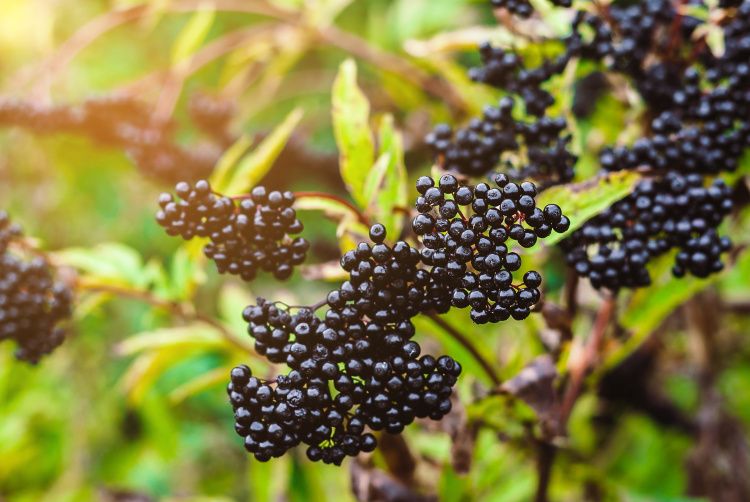INS Farms’ Elder Pure is first American-grown elderberry to undergo fingerprint analysis, says the firm
The polyphenol fingerprint analysis comparing American-grown elderberry to European-grown elderberry was performed by Complete Phytochemical Solutions.
Photo © AdobeStock.com/romankrykh

INS Farms (Purdy, MO), a growing, processor, and supplier of black elderberry, has announced the results of the first-ever polyphenol fingerprint testing of black elderberry grown in the U.S. The test was performed by Christian Krueger and his team at Complete Phytochemical Solutions.
“The ambiguity in not knowing what exactly constitutes the starting material, we believe, prohibits trustworthy results of human clinical trials,” said Devon Bennet, CEO of INS Farms, in a press release. “Revealing the thumbprint of the black elderberry grown in the USA is crucial because we cannot do any reasonable studies with any accuracy or repeatability.”
Knowing the constituent profile, he adds, can also dramatically reduce the incidents of adulteration by spotting questionable material prior to manufacturing.
“We compared the polyphenol fingerprint of American-grown elderberry to its cousin, European-grown elderberry and found that they were remarkably similar with the exception of a few biomarkers that differentiates the two berries,” explained Krueger in a press release. Now, the imperative is to quantify the starting material (American-grown elderberry) prior to performing any kind of in vitro or human clinical trials.
“By understanding the fundamental structure of American elderberry, we can then develop truthful structure/function claims in various health areas,” adds Krueger. “Our focus moving forward is innovation, research and science to take elderberry beyond cough and cold.”